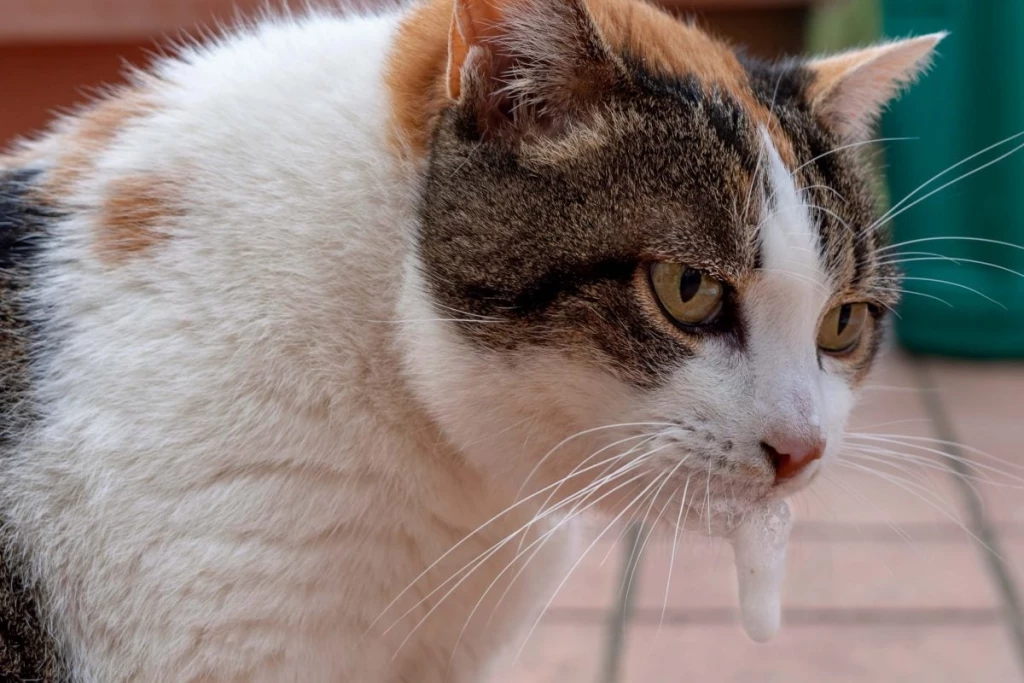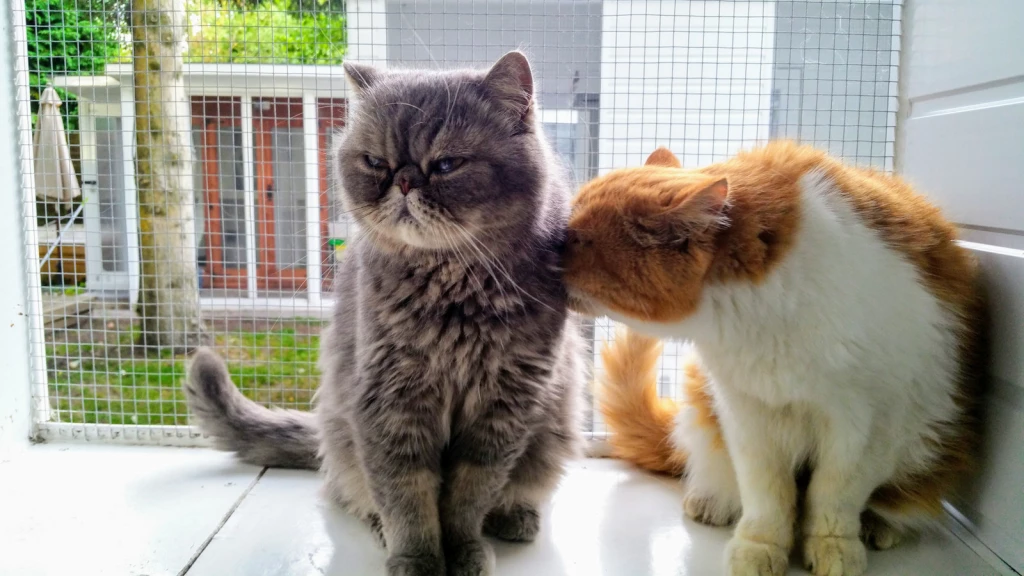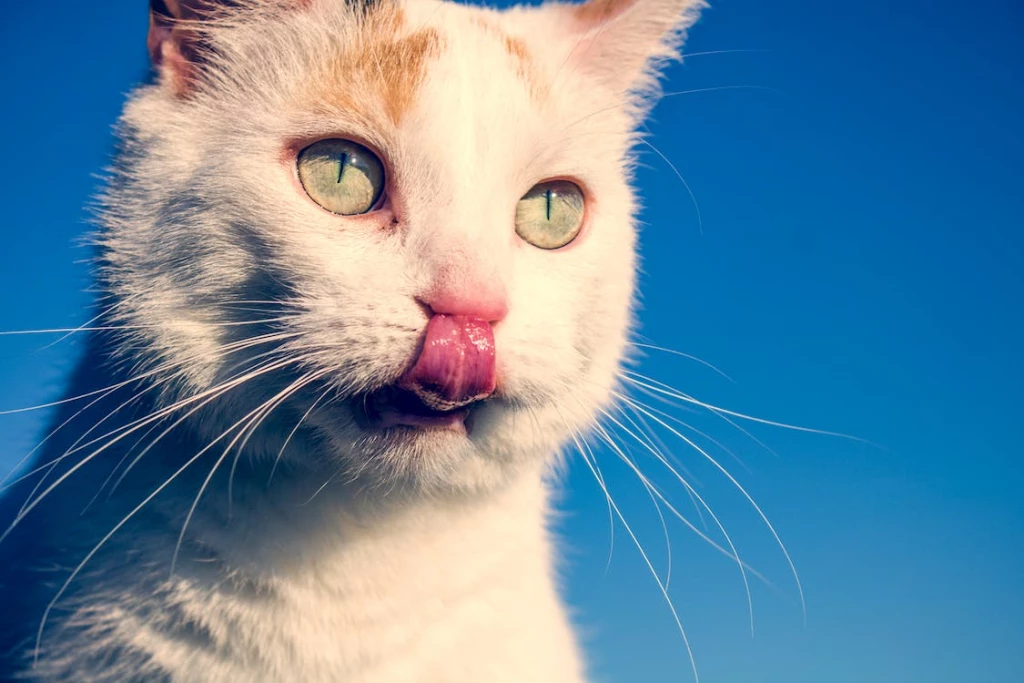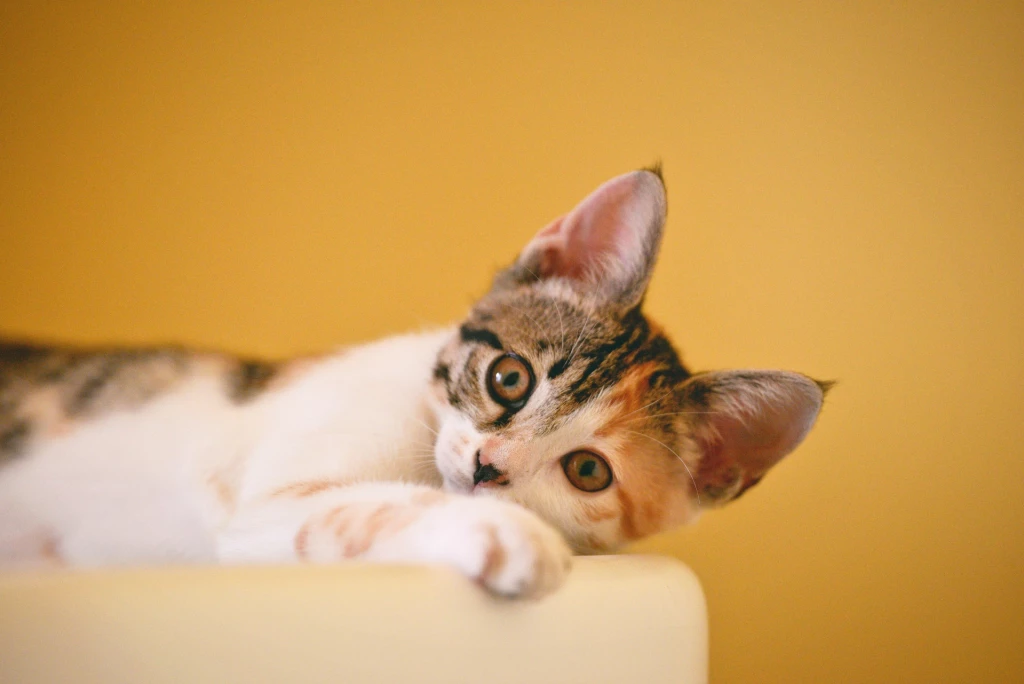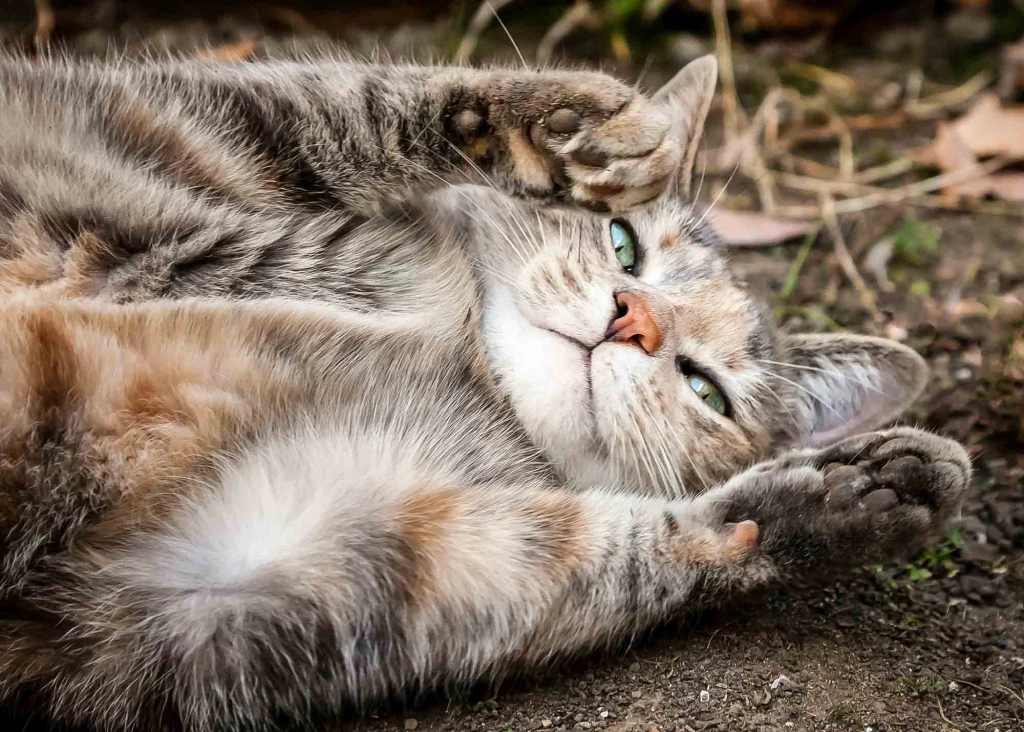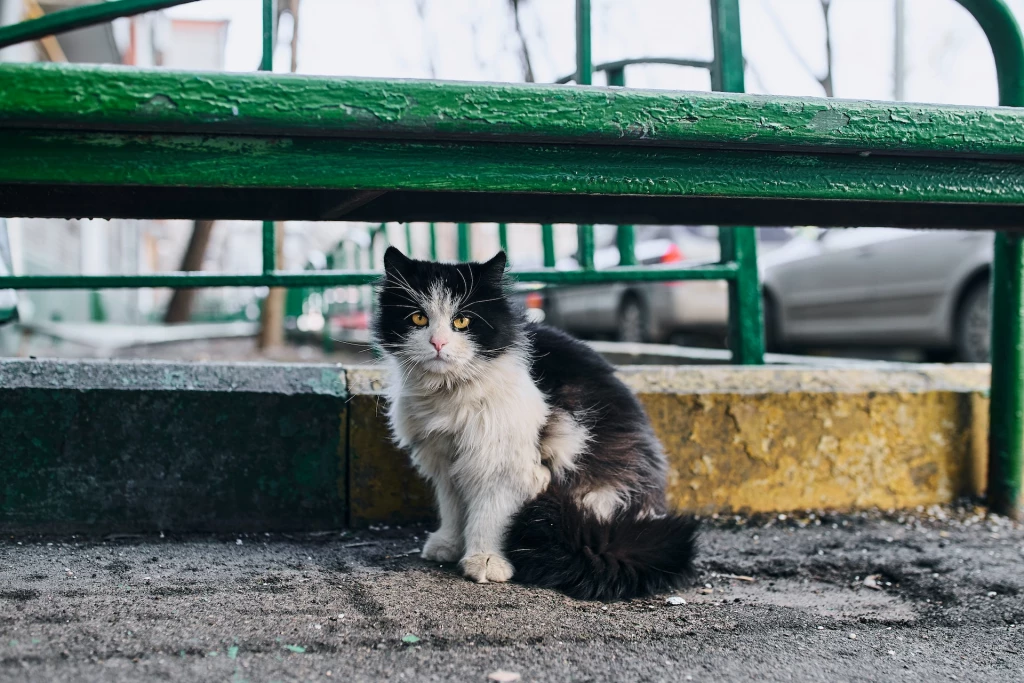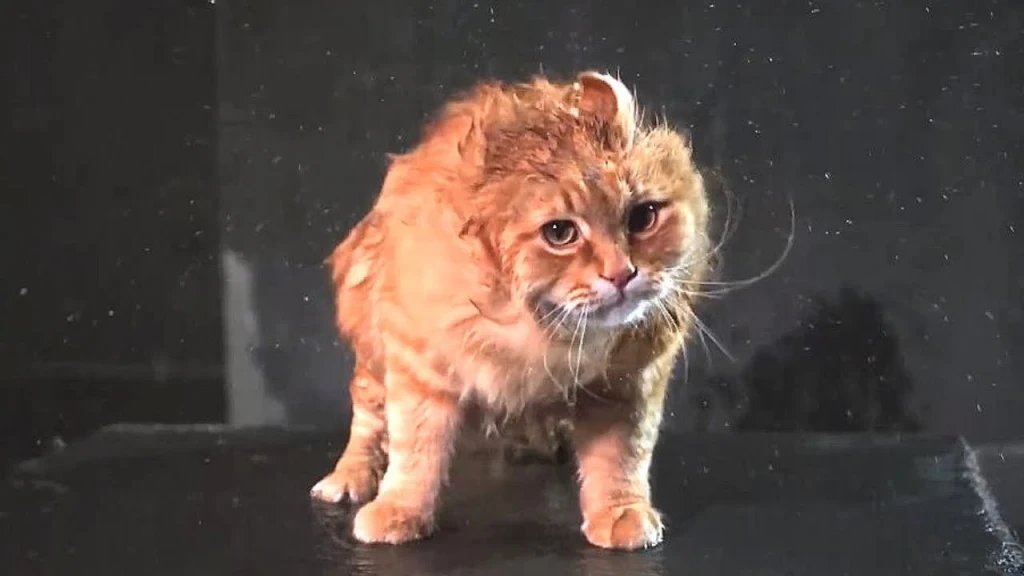Have you ever seen your cat with white foam around their mouth and wondered what was going on? If so, you’re not alone. Many cat owners have experienced this scary sight and felt worried and confused. Foaming at the mouth is not a normal behavior for cats and can indicate a serious health problem or a reaction to something they ate or swallowed.
In this blog post, we’ll explain some of the possible causes of foaming at the mouth in cats, how to identify them, and what to do about them. We’ll also give you some tips on how to prevent foaming at the mouth in cats and keep them safe and healthy. By the end of this post, you’ll have a better understanding of why your cat is foaming at the mouth and how to help them. Let’s get started!
Possible Causes Of Foaming At The Mouth In Cats
Rabies
One of the most serious and fatal causes of foaming at the mouth in cats is rabies. Rabies is a viral infection that affects the nervous system and can cause behavioral changes, aggression, drooling, and foaming.
Rabies is transmitted through the bite of an infected animal, such as a raccoon, skunk, fox, or bat. Rabies can also be passed from cats to humans, so it is a public health concern.
The symptoms of rabies usually appear within one to three months after exposure, but they can vary depending on the location and severity of the bite. Some of the signs of rabies in cats are:
- Difficulty swallowing
- Paralysis
- Seizures
- Coma
- Death
Rabies is very rare in vaccinated cats, but it is still possible if the vaccination is not up to date or if the cat has been exposed to a high dose of the virus.
Therefore, it is very important to vaccinate your cat against rabies and keep them away from wild animals that may carry the virus. If you suspect your cat has rabies, you should contact your vet immediately and avoid touching or handling your cat without proper protection.
There is no cure for rabies once the symptoms appear, so prevention is the best strategy.
Nausea
Another common cause of foaming at the mouth in cats is nausea. Nausea is a feeling of discomfort or sickness in the stomach that can make your cat lose their appetite, feel tired, and foam out of the mouth. Nausea can be caused by many factors, such as:
- Pregnancy
- Motion sickness
- Gastritis
- Diabetes
- Eating something spoiled or toxic
Nausea can also cause vomiting and diarrhea, which can lead to dehydration and electrolyte imbalance. Therefore, it is important to provide your cat with fresh water and monitor their fluid intake and output.
You can also try some home remedies or natural treatments to help your cat feel better when they are nauseous, such as:
- Ginger
- Chamomile tea
- Activated charcoal
- Bland diet
However, if your cat’s nausea persists or worsens, or if they show signs of poisoning or illness, you should consult your vet as soon as possible.
Your vet may prescribe anti-nausea medication or perform diagnostic tests to determine the underlying cause of your cat’s nausea.
Anxiety
Sometimes, foaming at the mouth in cats can be a sign of emotional distress. Cats can experience anxiety for various reasons, such as:
- Separation from their owner
- Socializing with other pets
- Moving to a new location
- Hearing loud noises
Anxiety can cause hypersalivation in cats, leading to white foam in their mouth. Anxiety can also cause other symptoms in cats, such as:
- Pacing
- Hiding
- Trembling
- Excessive grooming
To help your cat cope with anxiety, you can try some of these tips:
- Use synthetic pheromones, natural remedies, calming cat treats, catnip, or calming music to help your cat relax.
- Provide them with a safe and cozy hiding place, such as a cardboard box or a cat bed.
- Try to reduce the sources of stress in your cat’s environment, such as loud noises, unfamiliar people or animals, or sudden changes.
- Be patient and gentle with your anxious cat and avoid forcing them to do anything they don’t want to do.
If your cat’s anxiety is severe or affecting their quality of life, you may want to consult a vet or a cat behaviorist for professional advice and treatment.
Dental Conditions
Dental conditions are another possible cause of foaming at the mouth in cats. Dental conditions are problems that affect your cat’s teeth and gums, such as gingivitis, periodontal disease, tooth decay, or abscesses.
These conditions can cause pain, inflammation, infection, and difficulty eating or swallowing for your cat. They can also make your cat produce more saliva than normal, which can lead to foaming at the mouth.
Dental conditions can be caused by poor oral hygiene, age, diet, genetics, or trauma. Some of the symptoms of dental conditions in cats are:
- Bad breath
- Bleeding gums
- Loose teeth
- Weight loss
Dental conditions can also affect your cat’s overall health and increase the risk of other diseases, such as heart disease, kidney disease, or diabetes.
Therefore, it is important to prevent and treat dental conditions in cats and improve their oral health. You can do this by:
- Brushing your cat’s teeth regularly with a special toothpaste and toothbrush for cats
- Giving your cat dental treats or toys that can scrape off plaque and tartar from their teeth
- Feeding your cat a dry food that can reduce plaque buildup
- Taking your cat to the vet for regular dental checkups and professional cleaning
If you notice any signs of dental problems in your cat, you should seek veterinary attention as soon as possible. Some conditions may require antibiotics or surgery.
Food Poisoning
Food poisoning is another possible cause of foaming at the mouth in cats. Food poisoning occurs when your cat eats something that is contaminated with bacteria, toxins, or other harmful substances.
This can cause nausea, vomiting, diarrhea, dehydration, and foaming at the mouth. Food poisoning can be caused by:
- Spoiled food
- Raw meat or eggs
- Bones
- Plants
- Human foods that are toxic to cats
Some of the human foods that are poisonous to cats include chocolate, coffee, onions, garlic, grapes, raisins, xylitol, alcohol, and tuna. Some of the signs of food poisoning in cats are:
- Blood in vomit or stool
- Weakness
- Collapse
- Seizures
Food poisoning can be life-threatening if not treated promptly. Therefore, it is important to prevent and treat food poisoning in cats and keep them safe from harmful foods. You can do this by:
- Storing and disposing of food properly
- Keeping your cat away from human food or garbage
- Checking the labels of any products or supplements you give your cat
- Providing your cat with fresh water and a bland diet until they recover
If you suspect your cat has food poisoning, you should contact your vet immediately and follow their instructions.
Bitter-Tasting Medications and Food
Sometimes, foaming at the mouth in cats can be a harmless reaction to something they ate or swallowed that has a very unpleasant or sour flavor.
Cats have a strong sense of taste and dislike anything that tastes bitter. Some of the examples of bitter-tasting medications and food for cats are:
- Antibiotics
- Anti-inflammatory drugs
- Wormers
- Flea treatments
- Certain supplements
Bitter-tasting medications and food can cause foaming at the mouth in cats because they stimulate the production of saliva and trigger a gag reflex.
This is usually a temporary response that does not cause any harm to your cat. However, it can make it difficult for your cat to take their medication or eat their food.
To make bitter-tasting medications and food more palatable for cats and help them swallow them without foaming, you can try some of these tips:
- Mix the medication or food with a small amount of tuna juice, chicken broth, or yogurt. Cats may be more likely to eat something that smells and tastes familiar and appealing.
- Coat the medication or food with a thin layer of butter or margarine. This can help mask the bitter taste and make it easier for the cat to swallow.
- Use a pill pocket or a soft treat to hide the medication or food. Pill pockets are specially designed treats that have a hole in the middle where you can insert the medication or food. Soft treats can also be molded around the medication or food to disguise it.
- Give the cat a treat or a favorite food before and after the medication or food. This can help create a positive association and reward the cat for taking the medication or food.
- Praise and pet the cat after giving the medication or food. This can help reduce stress and anxiety and make the cat feel more comfortable and loved.
Conclusion
Foaming at the mouth can be a scary sight for any cat owner, but it does not always mean that something is seriously wrong with your cat. There are many possible causes of foaming at the mouth in cats, ranging from harmless to life-threatening. Some of the most common causes are bitter-tasting medications or food, dental problems, nausea, stress, poisoning, rabies, and seizures.
If your cat is foaming at the mouth, you should try to identify the cause and take appropriate action. If the foaming is due to a bitter-tasting medication or food, you can try some of the tips we shared above to make it more palatable for your cat and help them swallow it without foaming. If the foaming is due to a dental problem, you should take your cat to the vet for a check-up and treatment. If the foaming is due to nausea, stress, poisoning, rabies, or seizures, you should seek immediate veterinary attention as these conditions can be very serious and potentially fatal.
Foaming at the mouth is not a normal behavior for cats and should not be ignored. By knowing the possible causes and how to deal with them, you can help your cat feel better and prevent any complications. Remember to always consult your vet if you have any doubts or concerns about your cat's health and well-being.
